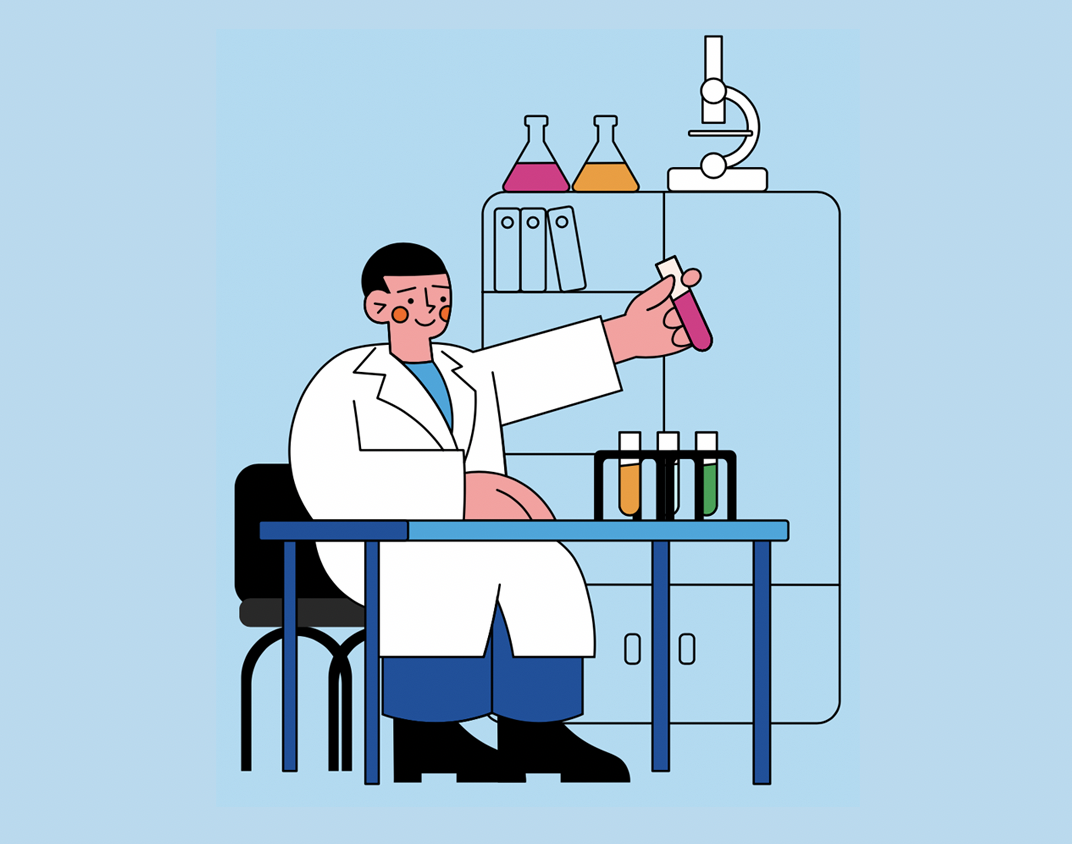CHEMISTRY CAREERS BEYOND THE LAB

Chemists use science to evolve thinking, make processes more efficient, and influence behaviour and decisions…
The image of a professor in a white coat is synonymous with most people’s visions of a career in chemistry. We’re here to tell you that careers in chemistry go way beyond this stereotype. If molecules, electrons and chemical reactions are your thing, read on!
Chemists use science to evolve thinking, make processes more efficient, and influence behaviour and decisions. Chemistry and its influence are all around us. They are at work in the food industry, where chemical substances are used in food production and preservation, and in the energy sector, where they are used to develop the efficiency of batteries relying on solar power.
Outside the lab
If you have a knack for science, there are wide-ranging career opportunities that tap into knowledge of chemistry. A related career offers variety, the opportunity to make an impact, and the chance to use creative thinking.
Here are some diverse career areas related to chemistry, along with an example of a job and the principal skill you would need to do it well.
Sustainability and the environment
Chemists play critical roles in laying the roadmap to a greener future for our planet. Environmental scientists and sustainability managers are examples of different yet equally important job roles involved in cutting air pollution, reducing waste and helping develop greener energy sources.
- Job example: A research assistant exploring ways to reduce industrial emissions or create biodegradable materials
- Skill required: Analytical thinking to develop efficient, environmentally friendly processes
Teaching
Could you inspire a class of school pupils just by demonstrating how hydrochloric acid reacts with magnesium? Or explain exactly how chemistry makes our bodies work? Science teachers are now in demand more than ever, which means that bursaries and scholarships are available to qualify. Chemistry teachers work in schools, colleges, and universities, combining subject knowledge with excellent communication skills.
- Job example: A secondary school teacher inspires students to explore the wonders of chemical reactions.
- Skill required: The ability to communicate well so as to explain complex concepts in a clear and engaging way.
Forensic scientist
Forensic science is a fascinating and popular career sector. Forensic scientists use chemicals and knowledge of chemistry to test and analyse evidence, which helps solve crimes.
- Job example: A scene of crime officer working for the police investigating crime scenes, fires, or suspicious deaths (some police forces recruit forensic apprentices via the Level 3 Laboratory TechnicianApprenticeship)
- Skill required: An innate attention to detail, as your evidence and testimony can contribute to upholding the law and ensuring fairness in legal proceedings
Healthcare professions
If your dream job is to be a vet, doctor, pharmacist, or dietitian, chemistry is an essential stepping stone. Most medical degrees expect you to have two science subjects, normally stipulating chemistry and/or biology.
- Example pathway: Studying A-levels (or equivalent) in chemistry, biology, and maths before pursuing a degree in medicine, veterinary science, or pharmacy. Most medical degrees expect you to have two science subjects and ordinarily stipulate chemistry.
- Degree Apprenticeships: For anybody looking for alternatives to traditional university pathways, degree apprenticeships are emerging as an option in healthcare-related fields, so keep an eye out for ongoing announcements.
Essential skills for chemistry careers
To thrive in any chemistry-related role, you’ll need more than just academic qualifications. A key behaviour to help you succeed is curiosity! Then, during your career, you will develop integrity and technical proficiency and continue to gain knowledge of chemical concepts and principles.
Gaining a degree is the most common route to a chemistry-related career. As an alternative, the Open University offer a two-year professional qualification. If you are working in a related field, your employer may pay for your training. Another pathway to consider is that many firms hire laboratory technicians for entry-level jobs after A-levels.
Chemistry can be a force for good in the world. It is an academic subject, so you must be certain of your aptitude and enthusiasm. Once you have established that, the possibilities are endless. If you are committed to making a positive impact through science, study hard and take every opportunity you are offered to gain experience.